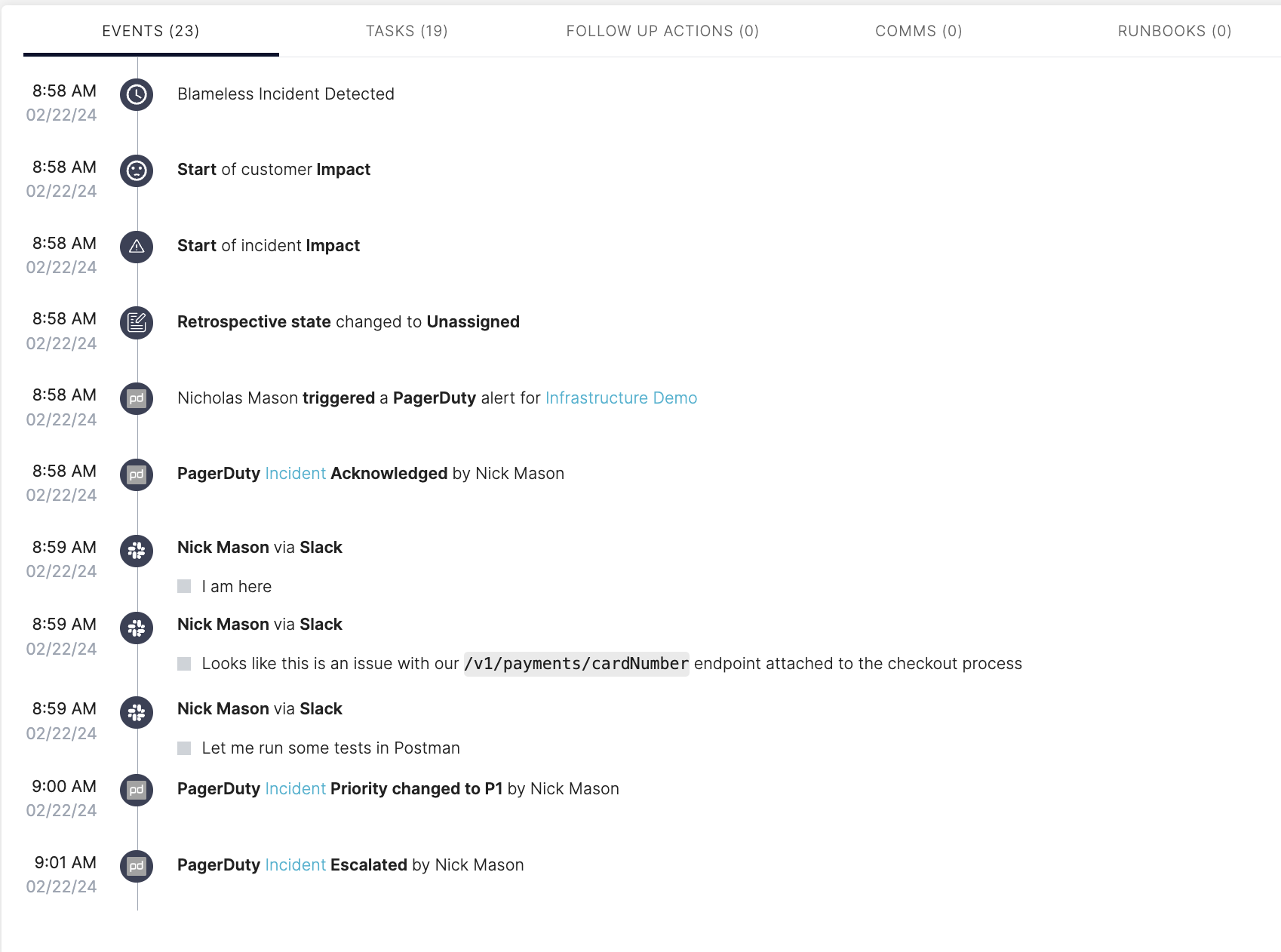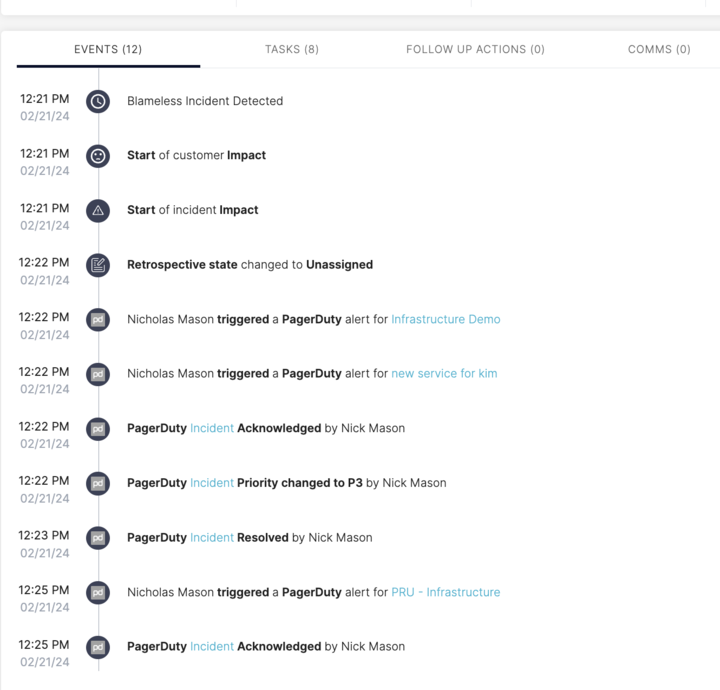Track PagerDuty actions in Blameless incident timeline

Have you wondered how long it takes your team to complete critical tasks like acknowledging alerts or escalating an incident to the next level in PagerDuty? Making the team more efficient at completing these types of tasks can have a big impact on their overall effectiveness. These types of data points are great to examine during the retrospective process, but only if you capture them in the first place. Blameless now captures all those PagerDuty actions in your incident timelines as “critical events”. Each one clearly displayed, easily accessible, and ready to be discussed at your next retrospective meeting.
Notifications, acknowledgments, transitions to other teammates, manual or triggered escalations, priority changes, manual resolutions, all of these event types can now become part of your analysis of each incident. These new dimensions can help you get right to the heart of your team's standard incident response performance.
PagerDuty events in the Incident timeline
Out of the box, Blameless automatically captures the following critical PagerDuty actions in the incident event timelines:
- Triggered PagerDuty alerts
- Acknowledged PagerDuty incidents (related
- Unacknowledged PagerDuty incidents
- Escalated incidents
- Changed incident priorities
- Changed incident status (resolved)
Each record captured in the Blameless incident timeline includes a link back to the related PagerDuty alert or incidents, including the name of the responder who triggered the action in PagerDuty, so that you can easily correlate who did what when.

Then, when doing retrospectives, the incident timeline is readily available to users collaborating on crafting their retrospective and blamelessly assessing what could have been done differently to resolve incidents faster.
Reporting PagerDuty event statistics using Reliability Insights
With all these new PagerDuty events captured in Blameless, team leaders can produce powerful dashboards and reports to extract critical insights and trends using reliability insights. These can be shared with key stakeholders to identify more opportunities for improving the performance of the incident response team.
For example, reporting on the time from event triggering to acknowledgment in PagerDuty offers valuable insights into operational efficiency, but also SLA compliance, team performance, root cause analysis, real-time visibility, and continuous improvement, ultimately contributing to more effective incident management and better organizational resilience.
As you build new tiles (tables or graphs) in your dashboards in Reliability Insights, you can view and filter such PagerDuty events matching the following event types by filtering those starting with the word PAGER:
- PAGER_TRIGGERED
- PAGER_INCIDENT_RESPONDER_ADDED
- PAGER_INCIDENT_PRIORITY_CHANGED
- PAGER_INCIDENT_ACKNOWLEDGED
- PAGER_INCIDENT_RESOLVED
- PAGER_INCIDENT_ESCALATED
Call to action
To benefit from those new enhancements, immediately contact your Blameless administrator to disable and re-enable the integration of your Blameless instance with your PagerDuty account.
For brand new integrations with PagerDuty, Blameless will automatically place the new Blameless webhook in PagerDuty for Blameless to automatically capture those PagerDuty actions in the incident timeline.

.svg)